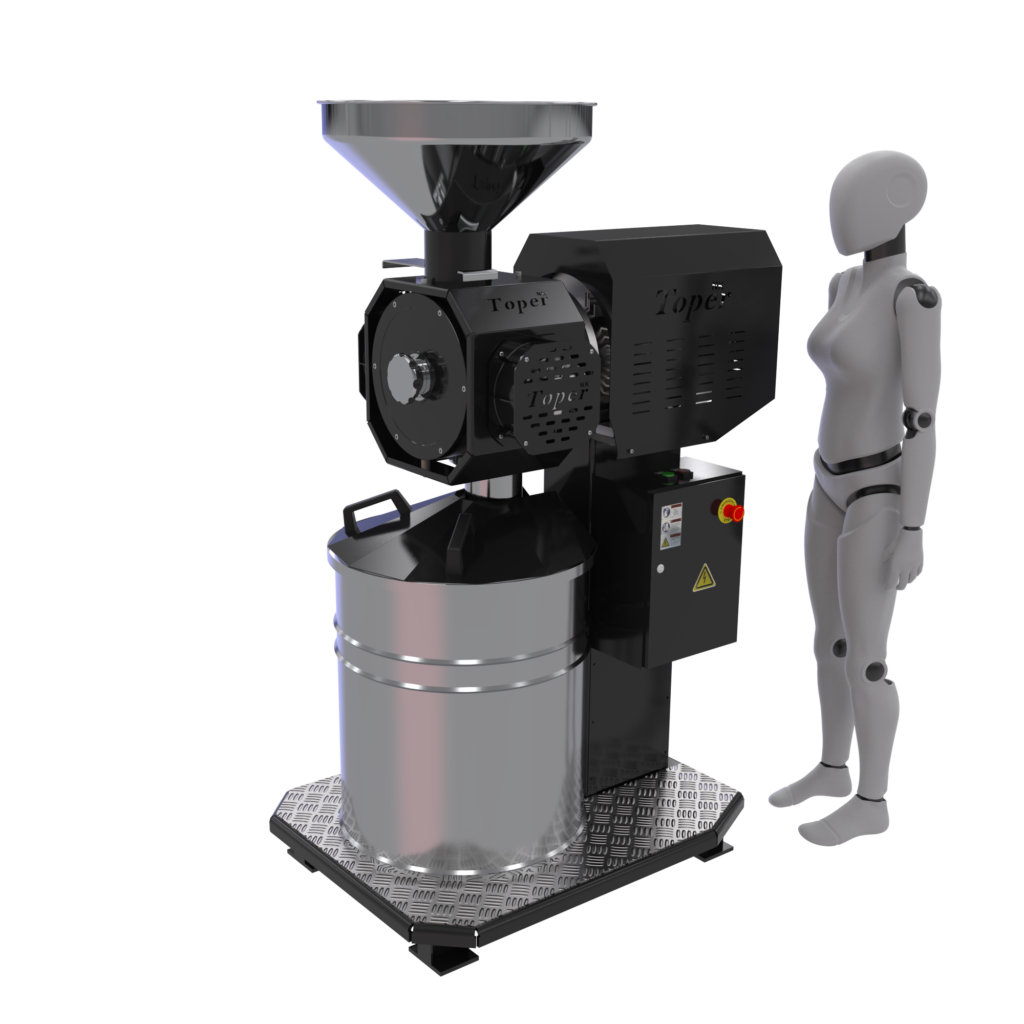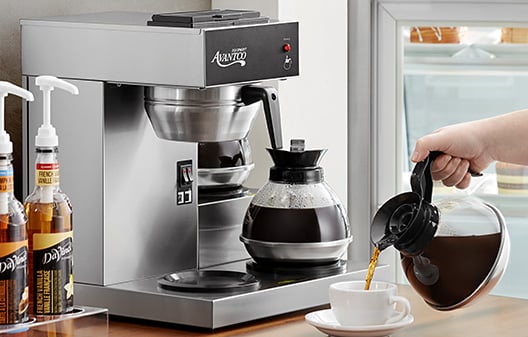Exactly How to Pick the Perfect Industrial Coffee Mill for Your Company
Picking the perfect commercial coffee grinder for your organization is a multifaceted decision that needs mindful factor to consider of several crucial aspects. In addition, understanding the different kinds of mills offered can significantly affect your operational performance.
Assess Your Grinding Demands
When selecting a commercial coffee grinder, one need to initially assess their grinding needs to guarantee ideal efficiency and uniformity. This first evaluation involves understanding the quantity of coffee to be refined daily, along with the wanted work dimension for numerous developing approaches. A high-capacity mill might be necessary for businesses serving large quantities of coffee, while smaller operations might locate an extra portable version sufficient.
Additionally, it is vital to think about the kinds of coffee beans being used, as various beans may require details grinding strategies to attain the finest flavor account. Oily beans may necessitate a mill created to deal with such qualities without overheating or clumping.
One more vital element is the called for grind consistency. Specialty coffee organizations commonly require precise grind dimensions to improve extraction and taste, making it important to choose a mill that can provide uniform outcomes. Assessing the readily available area and electric requirements will certainly assist in picking a grinder that fits flawlessly into your functional workflow. By extensively evaluating these factors, services can make informed decisions that straighten with their coffee grinding requirements, ultimately causing an exceptional item and satisfied clients.
Understand Mill Kind
Comprehending the various types of commercial coffee mills is crucial for making an informed choice that meets particular functional requirements. There are largely 2 categories of mills: blade grinders and burr mills.
Blade mills use rotating blades to cut the coffee beans, resulting in an inconsistent grind size - Industrial Coffee Grinder. While they might be more budget friendly, they are frequently not suitable for commercial applications where precision is important
On the other hand, burr grinders give a more consistent work by crushing the beans between two surface areas. They can be additional classified right into level burr and conelike burr mills. Apartment burr grinders use a regular work dimension and are commonly preferred for coffee prep work, while cone-shaped burr grinders are versatile and can handle a series of mixture approaches, from coffee to French press.
When picking a mill, think about the particular needs of your business, including preferred grind uniformity, manufacturing volume, and the types of coffee drinks you plan to supply - Industrial Coffee Grinder. Each mill type has its advantages and constraints, so recognizing these nuances enables educated decision-making that lines up with operational objectives
Evaluate Grind Size Uniformity
Achieving work size uniformity is necessary for producing top quality coffee, as variants in bit dimension can substantially impact extraction and flavor. When picking an industrial coffee mill, it is vital to assess just how well the device keeps uniformity in work size throughout various batches. Inconsistent grind dimensions can lead to irregular extraction, leading to a mug that may click here to find out more taste weak or excessively bitter.
To analyze work size consistency, consider grinders with attributes such as adjustable grind setups and top notch burrs. Burr mills, in specific, succeed in producing consistent bit sizes compared to blade mills. The product and shape of the burrs play a crucial duty, with stainless-steel and ceramic choices offering longevity and precision.

Consider Production Capacity
In the fast-paced world of coffee production, thinking about manufacturing ability is extremely important for organizations aiming to satisfy need without compromising top quality. The manufacturing capability of a commercial coffee mill directly influences a firm's capacity to accomplish orders successfully, take care of supply, and react to rising and fall market fads.
When evaluating production capacity, it is important to assess the grinder's result price, generally measured in pounds per hour. This dimension needs to line up with your company's forecasted sales volume and growth targets. A coffee shop with a high turn over may require a mill that can process several hundred pounds daily, while a smaller sized operation might be adequate with a reduced capability model.
In addition, think about the sort of coffee being refined. Different beans and blends may impact grinding rate and efficiency, demanding a grinder with the ability of managing diverse production demands. It's likewise worth considering the grinder's capacity to preserve regular quality under high output problems, as any changes can affect the end product.
Eventually, selecting a grinder that matches your company's production capability will guarantee you continue to be responsive and affordable to customer expectations.

Spending Plan and Upkeep Elements
When evaluating the best commercial coffee maintenance, spending plan and grinder variables play a considerable duty in the overall decision-making process. A preliminary investment in a top quality grinder can produce lasting advantages, but it's important to develop a clear spending plan that lines up with your company's operational requirements. Take into consideration both the acquisition rate and possible operational prices, such as energy usage and substitute components.
Industrial coffee mills need regular upkeep to make certain ideal performance and long life. Review the maker's suggestions for maintenance, consisting of cleaning schedules and components substitute, as these will affect lasting operational costs.

Spending in a grinder that is sturdy yet easy to keep can save cash in time. While lower-priced alternatives may be appealing, they may sustain higher upkeep costs and lowered efficiency. Inevitably, balancing first costs with lasting maintenance and functional efficiency will guide you to the most effective selection for your organization's coffee grinding requirements.
Verdict
Choosing the suitable commercial coffee mill requires a detailed evaluation of grinding needs, grinder types, grind size uniformity, manufacturing capability, and budgetary considerations. A well-chosen grinder not only click here now enhances the quality of the coffee produced but additionally adds to the overall success and profitability of the enterprise.
Specialized coffee organizations often require specific work dimensions to boost removal and flavor, making it important to choose a mill that why not find out more can supply consistent results. Flat burr grinders offer a regular work size and are usually favored for coffee prep work, while conelike burr mills are versatile and can handle an array of mixture techniques, from espresso to French press.
When picking a commercial coffee grinder, it is important to assess just how well the maker preserves uniformity in work size throughout various batches. Burr grinders, in certain, excel in creating consistent fragment sizes contrasted to blade grinders.Selecting the perfect commercial coffee grinder necessitates a comprehensive analysis of grinding requirements, grinder kinds, grind dimension consistency, manufacturing capacity, and financial considerations.